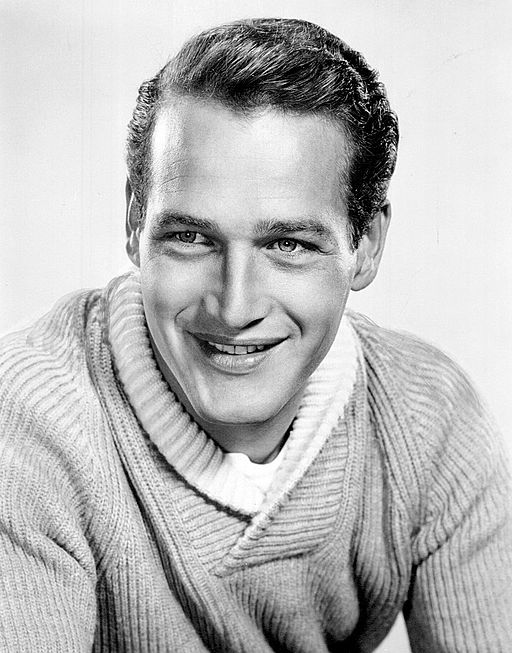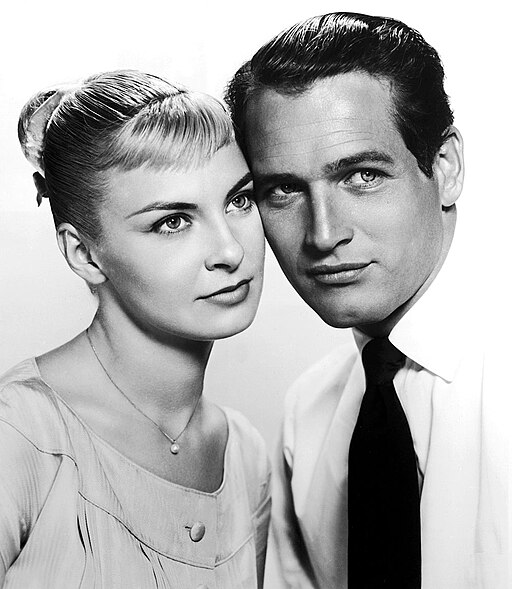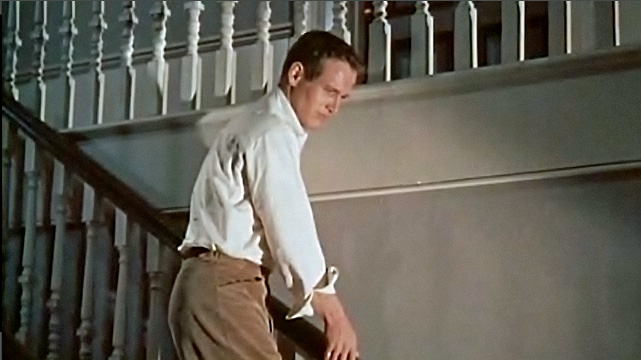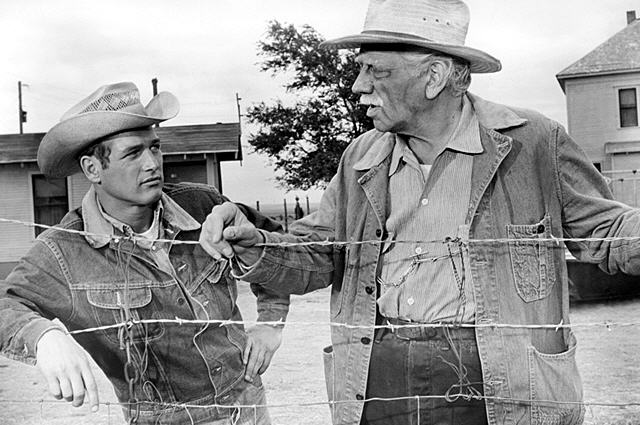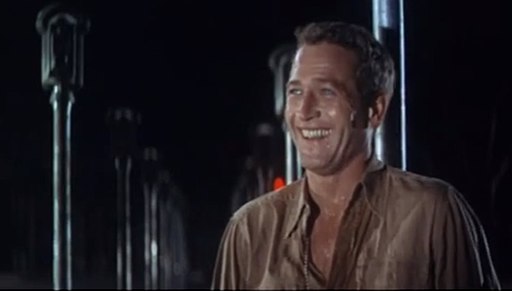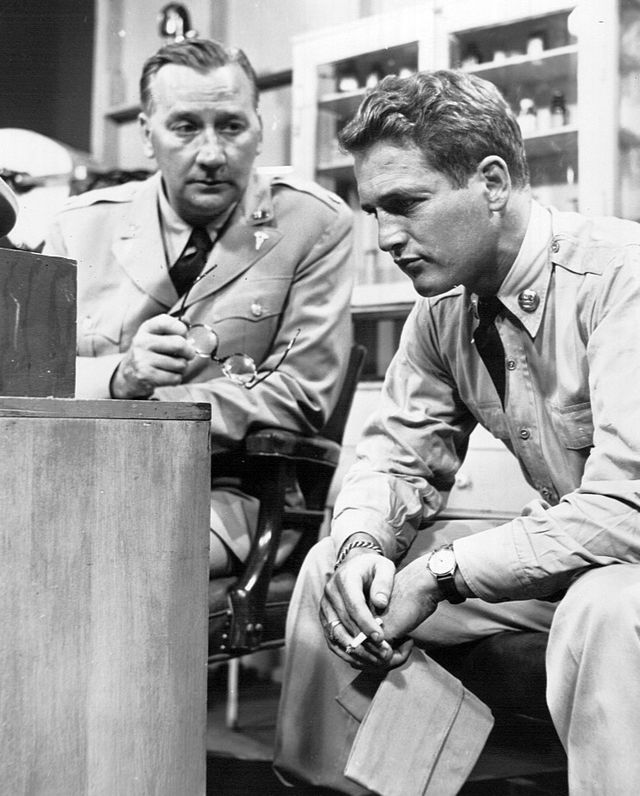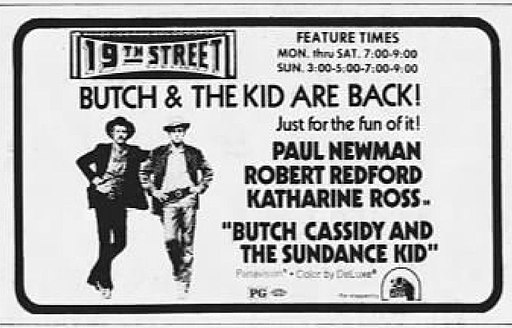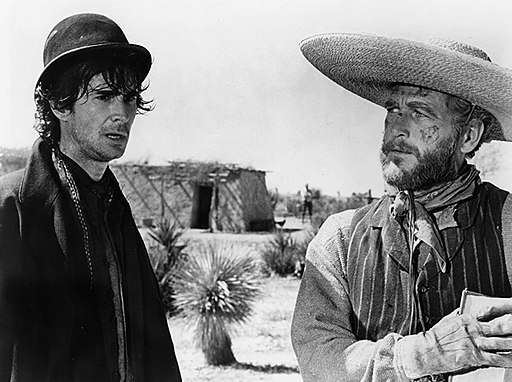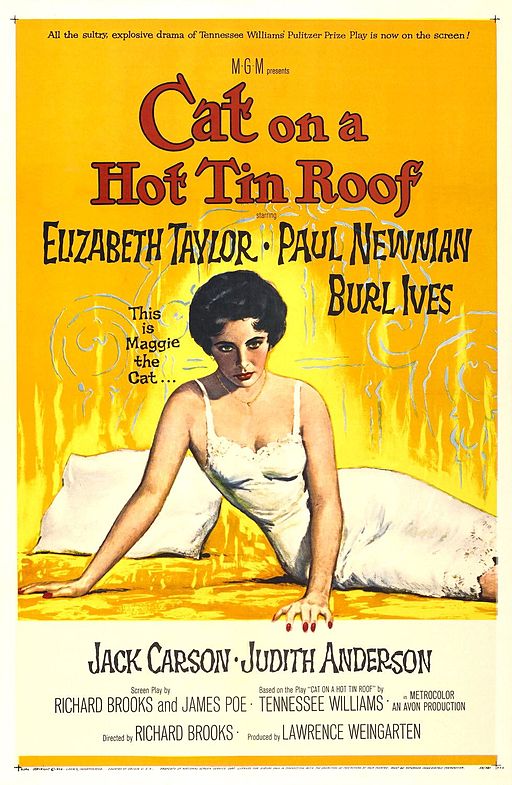Paul Newman
back| Full Name | Paul Leonard Newman |
| Stage Name | Paul Newman |
| Born | January 26, 1925 |
| Birthplace | Shaker Heights, Ohio, USA |
| Died | September 26, 2008 |
| Buried | Ashes scattered at his home in Westport, Connecticut |
| Married to | Jackie Witte (1949–1958), Joanne Woodward (1958–2008, his death) |
| Children | With Jackie Witte – Scott (1950–1978), Susan (born 1953), Stephanie Kendall (born 1954); With Joanne Woodward – Elinor |
| Notable films |
Paul Newman
The “King Cool” of Hollywood
Paul Newman was an iconic American actor, film director, producer, race car driver, IndyCar owner, entrepreneur, and philanthropist. He was known for his piercing blue eyes, charismatic screen presence, and versatile acting skills. Newman's film career spanned over five decades, during which he delivered memorable performances in a variety of roles.
Newman's breakthrough role was in "Somebody Up There Likes Me" (1956), and he became a major star with "Cat on a Hot Tin Roof." His other notable films include "The Hustler," where he played the pool shark "Fast Eddie" Felson, a role he reprised in "The Color of Money" (1986), for which he won an Oscar. "Cool Hand Luke," "Butch Cassidy and the Sundance Kid," and "The Sting" further solidified his status as a Hollywood legend.
Off-screen, Newman was known for his philanthropy and his passion for auto racing. He co-founded Newman's Own, a food company from which he donated all post-tax profits and royalties to charity. Newman was married to actress Joanne Woodward for 50 years, and their marriage was one of Hollywood's most enduring partnerships.
Paul Newman passed away on September 26, 2008, from lung cancer. His legacy extends beyond his cinematic achievements, remembered as much for his humanitarian work and business ventures as for his illustrious acting career.
Paul Newman was often affectionately referred to as "King Cool" by both fans and peers in the film industry. This nickname encapsulated not only his effortlessly cool and charismatic screen presence but also his persona off-screen as a laid-back and deeply principled individual.
Related
Paul Newman
Biography, analysis and all his movies
Paul Newman, an icon of American cinema and a renowned philanthropist, led a life as remarkable off-screen as it was on it.
Early Life and Education
Born on January 26, 1925, in Shaker Heights, Ohio, Newman grew up in a well-to-do family. He developed an interest in acting during his high school years. After serving in the Navy in World War II, he attended Kenyon College and later studied at the Yale School of Drama. His pursuit of acting continued at the famed Actors Studio in New York.
Path to Stardom
Newman's early career in theater and television led to his film debut in "The Silver Chalice" (1954). Despite a rocky start, his breakthrough came with "Somebody Up There Likes Me" (1956). He garnered critical and commercial success with "Cat on a Hot Tin Roof" (1958), cementing his status as a leading Hollywood actor. His roles in "The Hustler" (1961), "Cool Hand Luke" (1967), "Butch Cassidy and the Sundance Kid" (1969), and "The Sting" (1973) showcased his versatility and magnetic screen presence.
Marriages and Family
Newman's first marriage to Jackie Witte resulted in three children but ended in divorce. His second marriage to actress Joanne Woodward in 1958 was a celebrated Hollywood love story, lasting 50 years until his death. They had three daughters and often collaborated professionally.
Marriage with Joanne Woodward
Paul Newman's marriage to Joanne Woodward was one of Hollywood's most enduring and admired partnerships, both on and off the screen.
Meeting and Early Relationship
Newman and Woodward first met in 1953, while both were understudies for the Broadway production of "Picnic." At that time, Newman was still married to his first wife, Jackie Witte, with whom he had three children. Newman and Woodward's connection was instant and profound, but they did not begin a romantic relationship immediately.
Marriage and Collaboration
The couple married in 1958, after Newman divorced Witte. Their marriage was characterized by a deep bond and mutual respect for each other's talents. They collaborated professionally on many projects, including the films "The Long, Hot Summer" (1958), "Paris Blues" (1961), "Mr. and Mrs. Bridge" (1990), and several others. Their on-screen chemistry was a reflection of their real-life relationship.
Shared Interests and Support
Woodward and Newman shared many interests, including a love for acting, car racing (a passion of Newman's), and philanthropy. Woodward was a significant supporter of Newman's racing career and his philanthropic endeavors, including Newman's Own, the food company whose profits go to charity.
Balance of Career and Family
The couple navigated the challenges of Hollywood, managing to maintain a balance between their professional careers and their personal life. They had three daughters: Elinor "Nell" Newman, Melissa "Lissy" Newman, and Claire "Clea" Newman.
Public Image and Privacy
Despite being a high-profile couple, Newman and Woodward valued their privacy and maintained a relatively normal life away from the public eye. They lived away from Hollywood, in Westport, Connecticut, which helped them keep their family life private.
Enduring Partnership
Their marriage lasted 50 years, until Newman's death in 2008. It was often cited as an example of a successful Hollywood marriage, marked by mutual respect, love, and shared values.
Racing and Philanthropy
An avid race car enthusiast, Newman discovered a passion for racing while filming "Winning" (1969) and became a successful driver and team owner. His philanthropic endeavors are equally notable, especially through his food company, Newman's Own, from which he donated all profits to charity. He also co-founded The Hole in the Wall Gang Camp for seriously ill children.
Death and Legacy
Newman passed away on September 26, 2008, from lung cancer, a disease he battled privately. He was 83. Remembered as much for his philanthropic efforts as his acting, Newman left a lasting impact both in Hollywood and in the lives of countless individuals through his charitable work. His cool demeanor, iconic blue eyes, and talent on screen made him a timeless figure in American culture. Newman's life exemplified a rare combination of success, humility, and commitment to making a difference.
Paul Newman’s involvement in racing:
Paul Newman's involvement in racing was not just a pastime; it was a passion that played a significant role in his life. His interest in racing ignited in the late 1960s and developed into a serious pursuit.
Origins of Interest
Newman's interest in racing was sparked while filming "Winning" in 1969, where he played a racecar driver. To prepare for the role, he trained at the Watkins Glen Racing School and discovered a genuine passion for the sport.
Racing Career
Newman started racing professionally in 1972, competing in Sports Car Club of America (SCCA) events. Despite his late start (he was already in his late 40s), Newman was remarkably successful as a driver. He won several national championships in SCCA road racing and competed in many prestigious events, including the 24 Hours of Daytona and the 24 Hours of Le Mans.
Team Ownership
In the 1980s, Newman co-founded Newman/Haas Racing, a team competing in the IndyCar series. The team was highly successful, winning several championships with drivers like Mario Andretti and Nigel Mansell.
Continued Passion
Newman continued racing well into his 70s, demonstrating not only his skill and dedication but also his physical fitness and competitive spirit. He set records for being the oldest driver to win a professionally sanctioned race and for his class win at the 24 Hours of Daytona.
Impact on Racing
Newman's involvement in racing brought increased attention to the sport. He was not just a celebrity dabbling in racing; he was genuinely committed and respected within the racing community. His presence at racing events often drew fans and increased media coverage.
Personal Significance
For Newman, racing was more than a hobby; it was a form of therapy and escape from the pressures of Hollywood. He often spoke of the focus and concentration that racing required and how it allowed him to clear his mind of other concerns.
In summary, Paul Newman's involvement in racing was a major aspect of his life. His dedication, success, and genuine love for the sport made him a respected figure in the racing community and added another fascinating dimension to his already remarkable life.
Notable movies from Paul Newman:
1950s:
- "The Silver Chalice" (1954): Newman's film debut, portraying an artist in ancient Greece.
- "Somebody Up There Likes Me" (1956): A biopic where Newman stars as boxer Rocky Graziano.
- "Cat on a Hot Tin Roof" (1958): An adaptation of Tennessee Williams' play, with Newman as Brick, an ex-athlete and alcoholic.
- "The Long, Hot Summer" (1958): Newman plays a charming drifter in this drama based on works of William Faulkner.
1960s:
- "The Hustler" (1961): A pool-shark drama where Newman plays "Fast Eddie" Felson.
- "Hud" (1963): Newman stars as the titular antihero in this family drama.
- "Cool Hand Luke" (1967): A prison drama featuring Newman as a rebellious inmate.
- "Butch Cassidy and the Sundance Kid" (1969): A Western classic with Newman as the legendary outlaw Butch Cassidy.
1970s:
- "The Sting" (1973): A con-man drama where Newman reunites with Robert Redford.
- "The Towering Inferno" (1974): A disaster film with Newman as an architect.
- "Slap Shot" (1977): Newman stars as a coach of a struggling hockey team.
1980s:
- "The Verdict" (1982): A courtroom drama with Newman as a washed-up lawyer.
- "The Color of Money" (1986): Newman reprises his role as "Fast Eddie" Felson, for which he won an Oscar.
1990s:
- "Nobody's Fool" (1994): A drama with Newman as a stubborn yet charming construction worker.
- "Message in a Bottle" (1999): A romantic drama featuring Newman in a supporting role.
2000s:
- "Road to Perdition" (2002): A mob film with Newman as a crime boss.
- "Cars" (2006): Newman's voice role as Doc Hudson in the animated film.
Analysis of the acting style of Paul Newman:
Paul Newman's acting style was distinguished by his natural charisma, emotional depth, and a subtle approach that resonated deeply with audiences. Here's an analysis of his style:
Understated Realism
Newman was known for his understated, naturalistic approach to acting. He had the ability to convey complex emotions with minimalistic, yet highly effective gestures and expressions. This realistic portrayal made his characters relatable and authentic.
Blue-eyed Intensity
His piercing blue eyes were one of his most striking features, and he used them to great effect in conveying the inner turmoil or intentions of his characters. The intensity in his gaze could communicate more than lengthy dialogues.
Charisma and Charm
Newman exuded a magnetic on-screen presence. His charm was effortless, and he often played charismatic characters with a rebellious streak. This made him particularly effective in roles that required a likable rogue or a flawed hero.
Emotional Depth
Newman was adept at exploring the psychological depths of his characters. Whether playing a hustler in "The Hustler," a down-and-out lawyer in "The Verdict," or a conflicted son in "Cat on a Hot Tin Roof," he brought a layered and nuanced emotional depth to his roles.
Versatility
He successfully tackled a variety of genres, from drama to comedy, and action to romance, demonstrating his versatility as an actor. Newman was equally convincing as a con artist, a race car driver, a businessman, or a cowboy.
Physicality in Roles
He often incorporated physicality into his roles, whether it was playing a boxer, a pool player, or a race car driver. His athletic background helped him in portraying such physically demanding characters convincingly.
Evolution Over Time
Over the course of his career, Newman’s style evolved. He transitioned from the charming young leads of his early years to more complex and often darker roles later in life, always managing to bring a fresh perspective to each part.
Subtlety in Humor
Newman had a knack for dry humor and could deliver witty lines with a straight face, which added a unique flavor to his comedic roles.
Remarkable quotes from Paul Newman:
On Acting and Career:
- "I was always a character actor. I just looked like Little Red Riding Hood."
- "Acting is a question of absorbing other people's personalities and adding some of your own experience."
On Fame and Success:
- "The good news about getting older is that you don't lose all the other ages you've been."
- "You can only fool the public so long."
Reflecting on Life Choices:
- "A man can only be judged by his actions, and not by his good intentions or his beliefs."
On Philanthropy:
- "I want to acknowledge luck, the benevolence of it in my life and the brutality of it in the lives of others."
On Personal Growth:
- "To be an actor you have to be a child."
On Racing (one of his passions):
- "Racing is the best way I know to get away from all the rubbish of Hollywood."
On His Iconic Appearance:
- "I picture my epitaph: 'Here lies Paul Newman, who died a failure because his eyes turned brown.'"
On Love and Marriage:
- "Why go out for hamburger when you have steak at home?" – referring to why he remained faithful in his marriage.|
On Humor:
- "If you're playing a poker game and you look around the table and and can't tell who the sucker is, it's you."
On Legacy:
- "I'd like to be remembered as a guy who tried — tried to be part of his times, tried to help people communicate with one another, tried to find some decency in his own life, tried to extend himself as a human being."
Analysis of Paul Newman’s performance in “The Color of Money”:
In "The Color of Money," Paul Newman reprised his role as "Fast Eddie" Felson from "The Hustler" (1961), delivering a performance that earned him an Academy Award for Best Actor. This film, directed by Martin Scorsese, showcases Newman's ability to evolve a character over time, reflecting both continuity and change. Here’s an analysis of his performance:
Matured Characterization
Newman's "Fast Eddie" in "The Color of Money" is a more seasoned, world-weary version compared to the brash young pool hustler he portrayed in "The Hustler." Newman skillfully conveys how Eddie has aged, incorporating a sense of maturity, experience, and a tinge of cynicism.
Subtlety and Depth
The performance is marked by subtlety and depth. Newman portrays a complex mix of emotions – from the excitement of rediscovering his passion for pool to the regret and reflection on his past. His facial expressions, body language, and tone of voice all convey this nuanced emotional landscape.
Mentor-Protege Dynamics
In the film, Eddie mentors a young pool player, Vincent, played by Tom Cruise. Newman's interactions with Cruise bring out a dynamic where Eddie's past and future collide. There’s an underlying tension in his performance, as he embodies both a teacher and a competitor.
Internal Conflict
Newman effectively portrays Eddie’s internal conflicts. He’s a character torn between the lure of the hustle and the desire for genuine competition, between his past glories and present realities. This internal struggle is central to Newman's portrayal.
Physicality
Even though Newman was in his 60s during filming, he maintained a physical presence that matched the younger Cruise. His portrayal of a pool player was convincing, reflecting both the confidence and the weariness of a veteran.
Reflective and Contemplative
There’s a contemplative aspect to Newman’s performance. Through his portrayal, the audience gets a sense of a man looking back on his life, contemplating his choices, and facing his aging process. This reflective quality adds a philosophical depth to the movie.
In "The Color of Money," Newman didn’t just reprise a role; he reinvented it, adding layers of complexity and depth. His performance is a testament to his enduring talent and his ability to adapt and evolve as an actor. The film allowed Newman to showcase a different set of skills – less about the brashness of youth and more about the nuanced understanding of a life lived in the shadows of both fame and obscurity.
Awards and Nominations:
Academy Awards (Oscars):
- Won Best Actor for "The Color of Money" (1986).
- Received an Honorary Oscar in 1986 for his many memorable and compelling screen performances.
- Nominated for Best Actor for "Cat on a Hot Tin Roof" (1958), "The Hustler" (1961), "Hud" (1963), "Cool Hand Luke" (1967), "Absence of Malice" (1981), "The Verdict" (1982), "Nobody's Fool" (1994), and "Road to Perdition" (2002).
- Nominated for Best Picture as a producer for "Rachel, Rachel" (1968).
- Awarded the Jean Hersholt Humanitarian Award in 1994.
Golden Globe Awards:
- Won Best Director for "Rachel, Rachel" (1969).
- Won Best Actor for "The Color of Money" (1987).
- Won Cecil B. DeMille Award in 1984 for his outstanding contributions to the world of entertainment.
- Received multiple Best Actor nominations for films such as "Cat on a Hot Tin Roof," "The Hustler," and more.
BAFTA Awards:
- Won Best Actor for "The Hustler" (1962) and "Butch Cassidy and the Sundance Kid" (1970).
- Received several other nominations throughout his career.
Cannes Film Festival:
- Won Best Actor for "The Long, Hot Summer" (1958).
Screen Actors Guild Awards:
- Awarded a Lifetime Achievement Award in 1995.
Emmy Awards:
- Won for Outstanding Supporting Actor in a Miniseries or a Movie for "Empire Falls" (2005).
- Nominated for "Our Town" (2003).
Full overview of movies featuring Paul Newman:
1950s:
- 1954: "The Silver Chalice"
- 1956: "Somebody Up There Likes Me"
- 1957: "The Helen Morgan Story"
- 1957: "Until They Sail"
- 1958: "The Long, Hot Summer"
- 1958: "The Left Handed Gun"
- 1958: "Cat on a Hot Tin Roof"
- 1958: "Rally 'Round the Flag, Boys!"
- 1959: "The Young Philadelphians"
1960s:
- 1960: "From the Terrace"
- 1960: "Exodus"
- 1961: "The Hustler"
- 1962: "Paris Blues"
- 1963: "Hud"
- 1963: "A New Kind of Love"
- 1964: "The Outrage"
- 1964: "What a Way to Go!"
- 1965: "Lady L"
- 1966: "Harper"
- 1966: "Torn Curtain"
- 1967: "Hombre"
- 1967: "Cool Hand Luke"
- 1968: "The Secret War of Harry Frigg"
- 1969: "Winning"
- 1969: "Butch Cassidy and the Sundance Kid"
1970s:
- 1970: "WUSA"
- 1971: "Sometimes a Great Notion"
- 1972: "Pocket Money"
- 1972: "The Life and Times of Judge Roy Bean"
- 1973: "The Mackintosh Man"
- 1973: "The Sting"
- 1974: "The Towering Inferno"
- 1976: "Buffalo Bill and the Indians, or Sitting Bull's History Lesson"
- 1976: "The Drowning Pool"
- 1977: "Slap Shot"
- 1979: "Quintet"
1980s:
- 1980: "When Time Ran Out"
- 1981: "Fort Apache, The Bronx"
- 1981: "Absence of Malice"
- 1982: "The Verdict"
- 1984: "Harry & Son"
- 1986: "The Color of Money"
1990s:
- 1990: "Mr. & Mrs. Bridge"
- 1994: "The Hudsucker Proxy"
- 1994: "Nobody's Fool"
- 1998: "Twilight"
- 1999: "Message in a Bottle"
2000s:
- 2000: "Where the Money Is"
- 2002: "Road to Perdition"
- 2003: "Our Town" (TV Movie)
- 2005: "Empire Falls" (TV Mini-Series)
- 2006: "Cars" (voice role)

